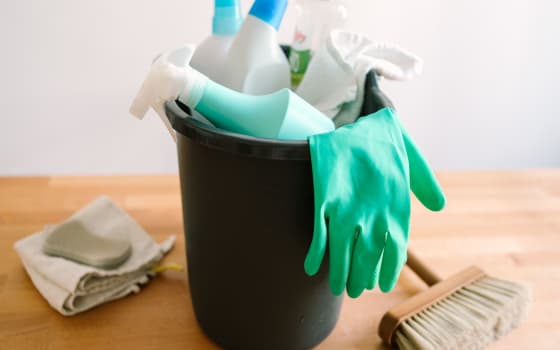Essential questions to ask before renting: from bills and repairs to area safety and pet policies - your guide to smart house-hunting.
Common Questions to Ask When Moving House
To avoid any complications, there is a variety of questions you should ask before you move house. You need to ensure you have time to plan and get things done quickly if rogue landlords are in the mix. You definitely need to find a property that fits all of your needs (including size and location), but you don’t want to be paying an extortionate price for it.
By law, landlords should keep their rental properties up to a certain standard but this doesn’t mean all of them do. Many try to get around the rules or put off doing work which affects the tenants quality of life whilst living there. Before moving into a new property, a tenant should always ask the right sort of questions – you need to make sure the property is fully up to standard before committing to a tenancy.
Here are some important questions you should be asking when you are in the process of moving house.
Are Bills Included?
Some tenancies include utilities, and others don’t, so it is important that you know exactly what the figure quoted gets you. If utilities and broadband aren’t included, you will need to get quotes from providers to work out how much your costs are going to be each month.
A higher than average rental price may allude to utilities being included however it is more common for tenants to have to arrange their bills and providers themselves. Ensure you get quotes from a variety of providers before committing though.
What Is The Area Like?
If you are moving to a new area, you will want to get a feel for it. It is definitely worth asking around to see what the area is like before you move there. See if you can find out about the noise levels or whether the neighbours are loud and annoying. You will also want to see how close you are to places such as pubs, clubs, and sports stadiums, as these will all affect the noise level. If you have young children, you will want minimal noise and good-quality schools and amenities nearby.
Something else you will also need to ask about is crime levels – you can easily find crime statistics for the area online so make sure that you look into this for peace of mind.
Is The Property Furnished Or Unfurnished?
This is often the thing that seals the deal for many tenants. A lot of tenants do not have much furniture so a furnished property is much more preferable. However long term renters and especially families, they will probably have their own furniture and would prefer an unfurnished property.
Unfurnished properties tend to be cheaper – this way the landlord doesn’t need to provide furniture or white goods and thus doesn’t have to spend out if something goes wrong with them.
You can easily pick up furniture for free or cheap from freecycling and reuse websites and Facebook groups. There are also many affordable shops where you can pick up furniture for a reasonable price.
If you do happen to rent a furnished property, you need to take good care of the furniture. The last thing you want is deductions from your deposit when you move because of the damage you caused.
How Much Will Council Tax Be?
Everyone has to pay council tax, although the level you pay will depend on your circumstances. Certain benefits or living alone will result in a reduction in the amount you pay. You can either pay a lump sum at the beginning of the tax year or pay monthly (this can be set up for 10 months or 12 months). The amount you pay will depend on the property you are in – Band A tends to pay far less than Band D, for example.
To get your accurate council tax quote upon moving in, let your local authority know the day you moved in so they can adjust it accordingly.
Will The Landlord Make Repairs?
If you have been renting for a long time, you will instantly spot defects when viewing properties. If you mention these to the letting agent, they should be able to get these repairs done before moving in.
A landlord will not update a property without a real need, but there is no harm in asking for certain repairs to be done before you commit to a tenancy.
Can I Redecorate?
Redecorating in a rented property is a topic that could be debated forever. If you and your landlord both expect you to live there for years, there is no harm in asking if you can redecorate. However, you will probably be asked to return it to its original state when you finally move out.
Make sure you always have permission though. Doing it without your landlord’s permission could see them asking you to return it to normal immediately or even serving you notice on your home for breaking your tenancy agreement.
How Much Is The Deposit?
To secure a property, you should expect to pay a deposit. These are usually one month’s rent, and you should be able to claim the entire amount back at the end of your tenancy – as long as the property is in good condition. Feel free to ask what deposit scheme your deposit will be in – this is something landlords must do by law, so if you are not happy with the answer, you might not want to proceed.
How Long Is The Rental Period?
You should always clarify how long the rental period is before signing any agreement. A fixed term agreement is much more stable than a rolling monthly contract. You will obviously benefit from a stable agreement if you have a family however a rolling contract is more beneficial if you only plan to stay for a short time.
A standard length of time for a rental agreement is 12 months, but always ask – don’t assume. Some landlords may be looking for a shorter tenancy, others a longer tenancy.
Can I Have Pets?
Many landlords don’t allow pets so it is important to ask this before committing to a tenancy. You should also ensure that if your tenancy says no pets, you don’t get one anyway as you could be served your notice for a breach of tenancy.
Some will allow pets with added clauses regarding damage within the tenancy agreement. Others will be happy for you to have caged animals but not dogs or cats. It is important that you ask and find out whether you can have an animal in your home and, if so, what animals are allowed.
What Is The Energy Efficiency Of The Home?
Your energy costs will certainly depend on the energy efficiency of your home. The more efficient it is, the less you should realistically be paying.
You should ask to see the property’s energy performance certificate, otherwise known as an EPC. These have ratings from A to G with G being the worst. A good rating means the property has energy efficient features – this may include good insulation or double glazing.
It is now illegal as of April 2018 to let properties with EPC ratings of F or G so if you view a property with one of these ratings, you should avoid it but not before asking for an explanation from the letting agent or landlord. The EPC could simply be out of date so you are within your rights to ask them to get a new one done before agreeing to a tenancy.





